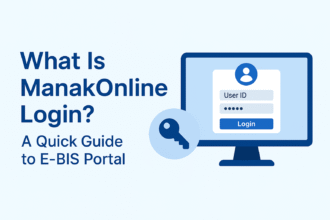How to Rank Your Business on Google Top 10 Pages
- 1 Business on Google Top 10 Pages
- 1.1 1.Conduct Comprehensive Keyword Research
- 1.2 2. Craft High-Quality Content Quality
- 1.3 3. Optimize Meta Tags and Descriptions
- 1.4 4. Make Your Website Mobile-Friendly
- 1.5 5. Invest in High-Speed Hosting
- 1.6 6. Leverage Backlinks
- 1.7 7. Utilize Local SEO
- 1.8 8. Regularly Update Content
- 1.9 9. Use Structured Data Markup
- 1.10 10. Monitor and Analyze Performance
- 2 Conclusion
Navigating the complexities of SEO to rank your page on Google can often feel like searching for a needle in a haystack. With constant algorithm updates and an ever-growing list of ranking factors, the task may seem daunting. However, even the best web development companies in India rely on proven strategies to get to the top of the search engine results page (SERP). In a digital landscape where visibility equals viability, understanding the nuts and bolts of SEO is essential for any business, whether you’re a startup looking to hire software developers or an established enterprise.
SEO is not just about appeasing search engine algorithms; it’s about providing genuine value to your target audience. The key to cracking Google’s code lies in a holistic approach that combines technical prowess with high-quality content and effective user engagement strategies. This comprehensive guide offers you ten actionable tips that can help your page climb Google’s ranks, gleaned from the practices that even the best web development companies in India swear by.
Business on Google Top 10 Pages
The realm of Search Engine Optimization (SEO) is ever-changing, yet the goal remains constant: ranking your page on Google to drive organic traffic. The competition is stiff, especially if you are looking to rank for highly competitive keywords. That said, even the best web development companies in India rely on certain core strategies to attain that coveted first-page ranking. Here are 10 actionable tips you can use to rank your page on Google, whether you’re a beginner or a seasoned marketer.
1.Conduct Comprehensive Keyword Research

Before you even think of ranking, it’s crucial to identify the keywords that are most relevant to your business. Tools like Google Keyword Planner, SEMrush, and Ahrefs can provide valuable insights into keyword search volume, competition, and relevance. Tip: If you operate in a niche market, don’t ignore long-tail keywords. For instance, instead of targeting “Software Developers,” aim for “Hire Software Developers for Small Businesses.”
2. Craft High-Quality Content Quality
Content is king. No amount of optimization can replace well-written, valuable, and unique content. Create blog posts, infographics, or videos that offer solutions to problems that your target audience is facing. According to HubSpot, companies that blog regularly get 55% more website visitors.
3. Optimize Meta Tags and Descriptions

The title tag and meta description are the first things that users see in Google search results. Make sure they contain your target keywords and accurately describe your page’s content.
4. Make Your Website Mobile-Friendly
With mobile searches overtaking desktop, Google’s ranking algorithm favors mobile-friendly websites. Many of the best web development companies in India emphasize the importance of responsive design.
5. Invest in High-Speed Hosting

Page speed is a critical ranking factor. Slow loading times can drastically increase bounce rates, affecting your position on SERPs.
6. Leverage Backlinks
Quality backlinks from reputable websites can dramatically improve your site’s credibility and ranking. Reach out to industry influencers and offer to guest blog or exchange links.
7. Utilize Local SEO
Local SEO is essential for businesses that serve specific geographic locations. Optimize your Google My Business profile and encourage customer reviews to boost local search rankings.
8. Regularly Update Content
Outdated content can affect your rankings negatively. Ensure that your content remains current and relevant by regularly updating it with new information, statistics, and links.
9. Use Structured Data Markup

Structured data markup helps search engines understand your website’s content better, potentially leading to rich snippets and improved rankings.
10. Monitor and Analyze Performance
Utilize tools like Google Analytics to monitor key performance indicators (KPIs) like bounce rate, time on site, and organic search traffic.
Conclusion
Ranking your page on Google is a long-term commitment that requires a multi-faceted approach. Whether you’re planning to hire software developers for SEO or collaborate with the best web development companies in India, the above tips are your roadmap to success. By following these, you are well on your way to turning your website into a high-traffic, authoritative source in your industry.
Ranking your page on Google is far from a one-time affair; it’s an ongoing process that demands consistent effort and adaptability. With constant updates to search algorithms, what works today might not be as effective tomorrow. But with the principles outlined in this guide—from comprehensive keyword research to performance monitoring—you’ll have a solid foundation upon which to build your SEO strategy. These insights are not just theoretical but are the backbone of strategies used by top-notch professionals, whether they’re companies specializing in web development or firms that hire software developers.
The road to the top of Google’s SERP is not without its challenges, but it’s a journey worth embarking on. The rewards of high visibility, increased traffic, and customer engagement far outweigh the initial effort required to optimize your site. If you’re planning to go it alone or even considering collaborating with some of the best web development companies in India, this guide offers you a roadmap to SEO success. Master these ten tips, and you’ll not only rank higher but also offer your audience the valuable, high-quality content they are searching for.

















